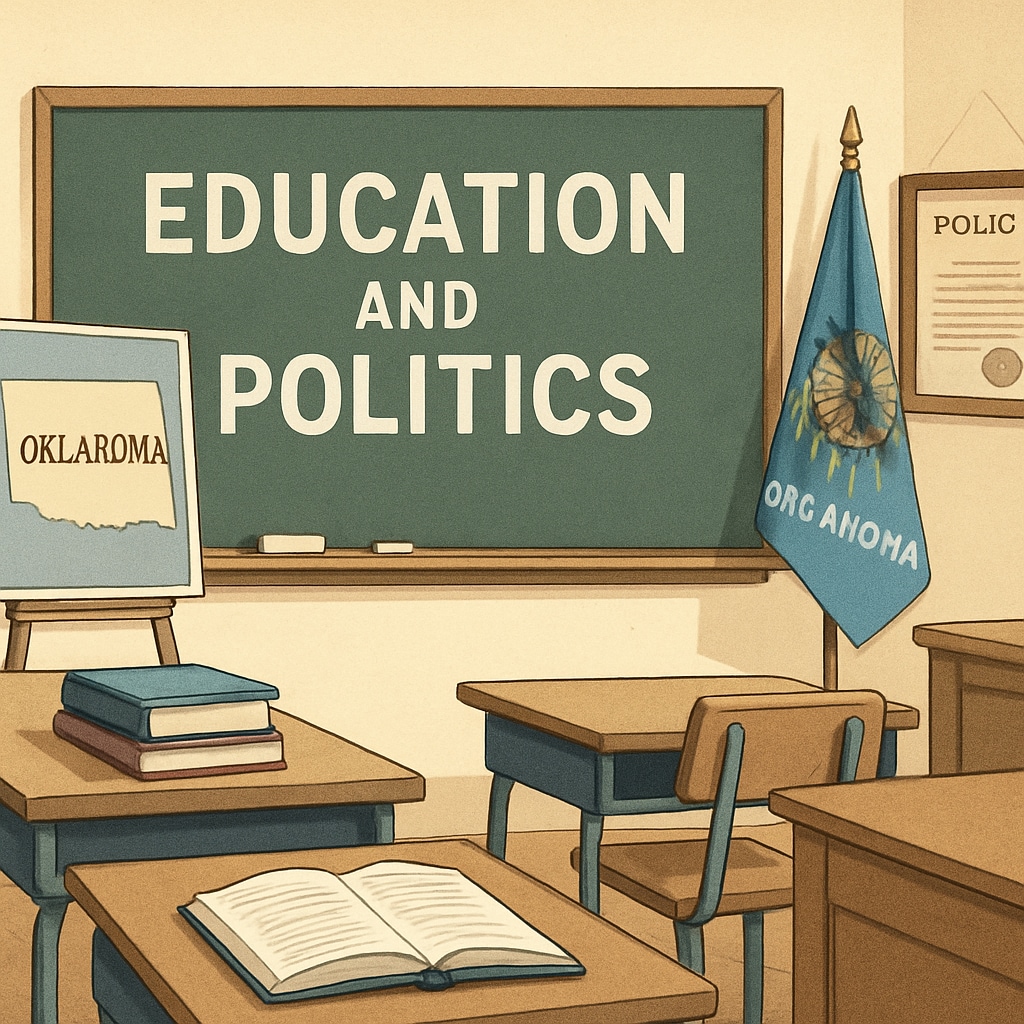In a move that has sparked nationwide debate, Oklahoma recently implemented a political ideology test for out-of-state teacher applicants. The policy, aimed at preventing the spread of “radical left-wing ideologies” in K-12 schools, has raised concerns about education neutrality, teacher autonomy, and the potential politicization of classrooms. While proponents argue that the measure ensures a balanced educational environment, critics warn it may undermine professional independence and discourage qualified educators from applying. This article delves into the implications of this controversial policy.
What Is the Political Ideology Test for Teachers?
Oklahoma’s political ideology test is a screening process designed to assess the political leanings of teachers applying from other states. According to state officials, the test is intended to prevent the introduction of “radical left-wing ideologies” into the classroom. While the exact format of the test remains unclear, reports suggest it includes questions about political beliefs, teaching approaches, and positions on controversial social issues.
Proponents of the policy argue that it serves as a safeguard against the perceived influence of political activism in education. They claim that ensuring ideological balance in schools is crucial for fostering critical thinking and maintaining public trust in the education system. However, critics contend that the test infringes on teachers’ professional autonomy and imposes unnecessary barriers to addressing the state’s ongoing teacher shortage.

Implications for Education Neutrality and Teacher Autonomy
The introduction of this policy raises profound questions about the role of politics in education. Education is often regarded as a neutral platform where students are exposed to diverse perspectives. However, the political ideology test appears to challenge this principle by selectively filtering educators based on their beliefs.
Critics argue that such policies may create a chilling effect, discouraging teachers from openly discussing important social and political topics. As a result, classroom discussions might become overly sanitized, depriving students of the opportunity to engage with complex real-world issues. Furthermore, the policy risks alienating educators who feel their personal values are being scrutinized, potentially exacerbating the state’s teacher shortage.
In addition, the test raises ethical concerns about the boundaries between personal beliefs and professional responsibilities. Teachers are trained to present material objectively, regardless of their individual views. By requiring political assessments, Oklahoma may inadvertently undermine trust in educators’ ability to separate personal ideology from their teaching practices.

Potential Impact on the K-12 Education Ecosystem
The long-term impact of Oklahoma’s political ideology test on its K-12 education ecosystem remains uncertain. However, several potential consequences are worth noting:
- Teacher Recruitment Challenges: The additional screening process may deter qualified educators from applying, further straining the state’s education system.
- Legal and Ethical Concerns: The policy could face legal challenges, as critics argue it violates constitutional protections for free speech and equal opportunity.
- Shift in Classroom Dynamics: Fear of ideological scrutiny may lead teachers to avoid controversial topics, limiting robust classroom discussions and critical thinking opportunities for students.
For example, states like Florida and Texas have also implemented policies aimed at restricting the teaching of certain concepts, sparking similar debates. These examples suggest that Oklahoma’s approach may be part of a broader trend of politicization in education.
The Way Forward: Balancing Education and Ideology
As the debate over Oklahoma’s political ideology test continues, policymakers and educators face the challenge of balancing ideological concerns with the need for a robust and diverse teaching workforce. Addressing this issue requires a nuanced approach that respects teachers’ professional autonomy while ensuring that schools remain spaces for open and critical inquiry.
One potential solution lies in emphasizing teacher training programs that prioritize objectivity and inclusivity. By equipping educators with the skills to navigate sensitive topics impartially, states can promote balanced education without resorting to controversial screening measures. In addition, fostering dialogue between policymakers, educators, and communities can help bridge divides and build consensus on the role of politics in education.
Ultimately, the success of any education system depends on its ability to empower both teachers and students to engage with diverse perspectives. Policies that prioritize ideological conformity over intellectual freedom risk undermining this foundational principle.
Readability guidance: The article uses short paragraphs, clear transitions, and a mix of narrative and bullet points for accessibility. Active voice is prioritized, and overuse of jargon is avoided to ensure readability while maintaining a professional tone.


